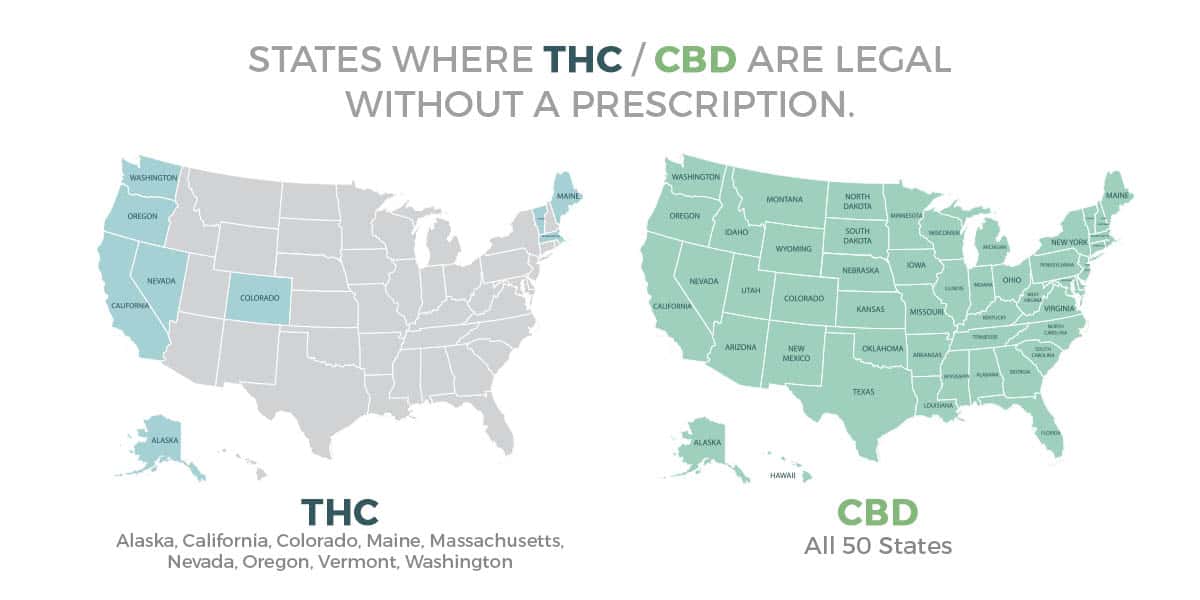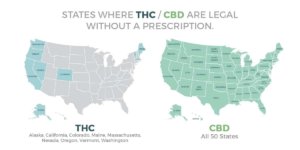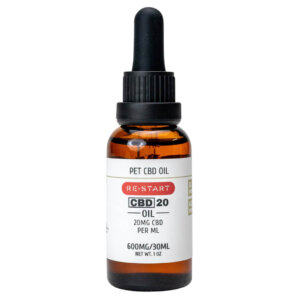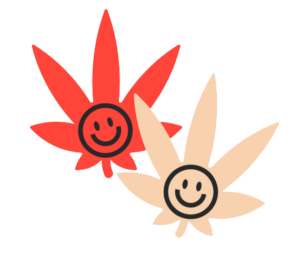We Ship Nationwide* $8.50 Flat Rate USPS Priority Shipping!

Thanks to the 2014 Farm Bill, hemp was declared legal in all fifty states. However, the legality of CBD is still confusing for many.
While hemp-derived CBD is legal in all 50 states, ‘marijuana’-derived CBD is not federally legal.
Both hemp and marijuana are members of the cannabis family making them similar in many ways. The government classifies “marijuana” as any plant of the cannabis family that contains greater than 0.3% THC. They classify hemp as any plant of the cannabis family that contains less than 0.3% THC.
Hemp plants have a high amount of CBD and low amounts of THC rather than marijuana plants that have high levels of THC. That’s why most CBD products use CBD from hemp not marijuana.
The bottom line here is, if your CBD comes from hemp, it’s legal.1 CBD made from “marijuana” with high levels of THC, is only legal if your state has legalized it.
Thanks to the passing of the 2018 Farm Bill, zero THC CBD is not illegal in any state in the USA. That’s right; according to federal law, it is legal in all 50 states. However, since the change in law is relatively new, some states might not fully embrace CBD. Below you will see four different jurisdictional categories based on pre-2018 Farm Bill practices.

Friendliest States.
These jurisdictions have explicit laws allowing retailers to sell industrial hemp-derived products.
They include Alaska, Colorado, Illinois, Indiana, Kentucky, Maryland, Missouri, New York, North Carolina, Oregon, Rhode Island, South Carolina, Tennessee, Utah, Vermont, and Wisconsin.
Friendly States.
In these jurisdictions industrial hemp grown in a Farm Bill-compliant agricultural pilot program is explicitly exempted from the definition of marijuana.
They include the District of Columbia, Hawaii, Kansas, Montana, New Mexico, North Dakota, and Oklahoma.
Gray Area States.
In these jurisdictions explicit prohibitions against the retail sale of industrial hemp-derived CBD products but that have exemptions in the law for the argument that hemp-derived CBD products are legal.
They include Arkansas, Delaware, Florida, Georgia, Idaho, Iowa, Louisiana, Maine, Massachusetts, Minnesota, Mississippi, New Hampshire, New Jersey, Pennsylvania, Texas, Virginia, and Washington.
States with Concern.
These jurisdictions have no explicit prohibitions against the sale of industrial hemp-derived CBD products. However, recent law enforcement actions or pronouncements raise the risk of the retail sale of industrial hemp-derived CBD products.
These jurisdictions include Alabama, Arizona, California, Connecticut, Michigan, Nebraska, Nevada, Ohio, South Dakota, West Virginia, and Wyoming.
Get Involved in Your State’s Advocacy of Hemp Legalization. And don’t let big pharma lobbyists continue to keep cannabis hemp from being consumed or grown without government control.
They stopped hemp farming 80 years ago and they are trying to stop it again. They want the power and control of a natural plant. Don’t let them get away with it again.
Pharmaceutical company Insys spent $500,000 to block legalization in Arizona. Five months later it won approval for a cannabis-derived medical drug.
“It’s pretty absurd that federal law considers marijuana to have no medical value, but allows for the development of synthetic versions of the same substance,” said Mason Tvert, of the Marijuana Policy Project, which has backed many state legalization measures.
Visit – VoteHemp.com for more information.
You may read articles that the DEA is essentially making the claim that while hemp may be congressionally protected CBD oil is not. According to Robert Hoban, managing partner of the Hoban Law Group, such moves by the DEA may not be legal. CBD Oil derived from hemp is legal.
While the 2018 Farm bill legalized hemp in all 50 states, each state is voting on it for their state. 42 states have already voted. Texas, well we are still waiting.
SIGN UP FOR THE RESTART ROUNDUP:
FOR EXCLUSIVE DISCOUNTS, FREE SAMPLES, CANNABIS ADVOCACY, EDUCATION, & SO MUCH MORE.

2521 Rutland Dr #150A
Austin, TX 78758
(512) 843-7223
Mon-Sat 10am-7pm
Closed Sunday
Curbside Pickup & Delivery

Pick-up Location only @ Progressive Insurance
13402 Anderson Mill Rd
Cedar Park, TX 78613
(512) 817-4537
Mon-Fri 10am-5pm
Curbside Pickup
© RESTART LLC SINCE 2018-2024 • TERMS OF SERVICE • STORE POLICIES • PRIVACY POLICY • RETURNS & EXCHANGES